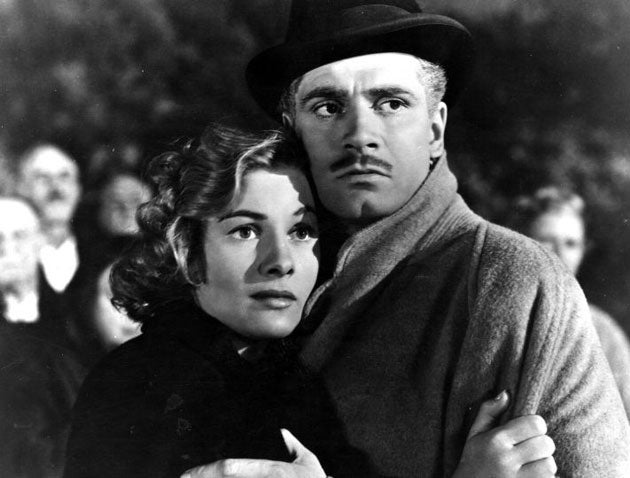Joan Fontaine: No one else suffered so glamorously on screen
Outside of Hitchcock’s greatest films, Fontaine was best known for her long-running feud with her sister, Olivia de Havilland

Your support helps us to tell the story
From reproductive rights to climate change to Big Tech, The Independent is on the ground when the story is developing. Whether it's investigating the financials of Elon Musk's pro-Trump PAC or producing our latest documentary, 'The A Word', which shines a light on the American women fighting for reproductive rights, we know how important it is to parse out the facts from the messaging.
At such a critical moment in US history, we need reporters on the ground. Your donation allows us to keep sending journalists to speak to both sides of the story.
The Independent is trusted by Americans across the entire political spectrum. And unlike many other quality news outlets, we choose not to lock Americans out of our reporting and analysis with paywalls. We believe quality journalism should be available to everyone, paid for by those who can afford it.
Your support makes all the difference.In her films with Alfred Hitchcock, Joan Fontaine excelled at playing shy, repressed young women with obvious inner passion but who were surrounded by men they couldn’t trust.
She was Oscar-nominated for her role as the second Mrs de Winter, the young wife of Maxim de Winter (Laurence Olivier), trying to exorcise the memory of her predecessor in Rebecca. Hitchcock filled the film with lambent close-ups of the actress, looking tormented but extraordinarily beautiful.
The formula was similar in Suspicion in which she is again the young wife, Mrs Aysgarth, this time not sure whether or not her husband (Cary Grant) is a killer. Fontaine was so desperate to play the role that she offered to forgo her salary, “if necessary”. She thought the role even better than the one in Rebecca and lobbied intensely hard to get it. This time, she won the Oscar.
Outside these outstanding parts in two of Hitchcock’s greatest films, Fontaine was arguably best known for her long-running feud with her sister, Olivia de Havilland. They heartily loathed each other and the tensions in their relationship were exacerbated by the competitiveness between them, both for roles and for Oscar glory.
It’s a pity this sibling rivalry has sometimes blinded audiences and critics to her qualities as an actress. Nobody knew like Joan Fontaine quite how to suffer glamorously on screen. She was back in familiar groove in Max Ophüls’s wonderful 1948 melodrama Letter From An Unknown Woman (adapted from a Stefan Zweig story).
This time round, she was the young woman who has a brief fling with a Viennese pianist (Louis Jourdan) she has admired since childhood. For her, the affair is the most important thing in her life. For the womanising pianist, it just another dalliance, quickly to be forgotten. Fontaine again excelled as the long-suffering heroine. It’s telling that in all three of these films, regarded as cast-iron classics today, she was essentially playing variations on the same character.
Join our commenting forum
Join thought-provoking conversations, follow other Independent readers and see their replies
Comments